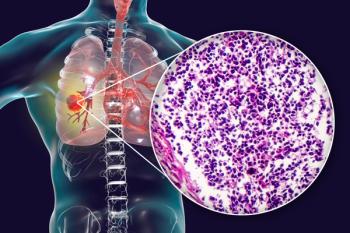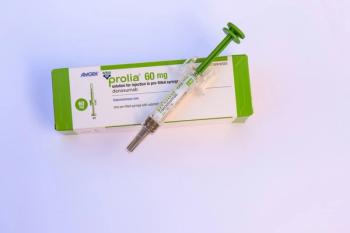
Research suggests H5N1 may be spreading undetected among humans, particularly in veterinarians with frequent animal exposure.

Research suggests H5N1 may be spreading undetected among humans, particularly in veterinarians with frequent animal exposure.

Although larsucosterol did not show statistical significance, it showed clinically meaningful trends in 90-day mortality in patients with severe alcohol-associated hepatitis.

Prescribing and dosing appropriate treatments for patients with sickle cell disease while managing episodes of acute pain are some of the integral roles of pharmacists.


All stakeholders should work together to determine and address drug shortages.

Phil Vigeant shares insights on the health benefits of protein supplements and guidance for consumers to identify safe and effective protein powder products.

New data from the longest known trial of pediatrics and adolescents in the postacute phase of COVID-19 show they are at a heightened risk of gastrointestinal tract symptoms.

Clinical decision support systems based on algorithms have improved outcomes and reduced costs in other health care settings.

Second-line and later treatment options for small cell lung cancer are limited.

Donna Ryan explains why long-term treatment with GLP-1 medication is typically necessary to maintain weight loss benefits.

Nivolumab demonstrated a sustained disease-free survival benefit over placebo in high-risk muscle-invasive urothelial carcinoma (MIUC).

The approval makes the vaccine the first of its kind for this indication in the United States.

The data were presented at the 2025 ASCO Genitourinary Cancers Symposium.

Pharmacists can support patients with treatment education, monitoring, and adherence, helping to overcome challenges posed by cognitive decline.

The authors are optimistic that these findings may help develop defenses to prevent food allergies in at-risk infants.

Future research can explore the underlying cause of recurrent pericarditis with systemic Sjögren syndrome and the combination of rilonacept with immunosuppressive therapies.

The authors suggest future research should consider inflammation and the gut as potential therapeutic targets improve depression in patients with chronic kidney disease (CKD).

Pharmacists should emphasize the importance of medication adherence and lifestyle changes.

The approval in multiple indications is designed to improve access to effective, proven treatments for skeletal fractures, which can greatly reduce patient quality of life.

Invasive meningococcal disease is a severe bacterial infection caused by the bacterium Neisseria meningitidis, often leading to meningitis or sepsis.

Steven Pipe, MD, explains the long-term efficacy data surrounding etranacogene dezaparvovec in patients with hemophilia B.

DLL3 is an emerging therapeutic target in small cell lung cancer and other neuroendocrine carcinomas, with 1 FDA-approved therapy and several others under investigation.

Amlenetug could provide a treatment option for patients with multiple system atrophy, a progressive and rare condition that causes damage to the brain’s nerve cells.

C. Brooke Adams, PharmD, BCOP, discusses the evolving diagnostic criteria and management strategies for cytokine release syndrome (CRS) and immune effector cell-associated neurotoxicity syndrome (ICANS) in CAR T-cell therapy, highlighting advances in toxicity prevention and treatment selection.

Data from the phase 2 CABRAMET trial suggests the potential of cabozantinib for treatment of brain metastases from renal cell carcinoma (RCC).

Enfortumab vedotin, trastuzumab deruxtecan, and disitamab vedotin were highlighted at the 2025 ASCO Genitourinary Cancers Symposium.

A one-time infusion of etranacogene dezaparvovec-drlb led to sustained bleeding control and a reduction in factor IX prophylaxis in patients with hemophilia B.

Panelists at the 2025 ASCO Genitourinary Cancers Symposium discussed challenges and new approaches to treatment.

RSV poses a significant threat to high-risk adults, but effective vaccines offer strong protection, highlighting the need for increased vaccination rates and education.

Insulin-aspart-szjj (Merilog) is the first rapid-acting insulin biosimilar product approved by the FDA.